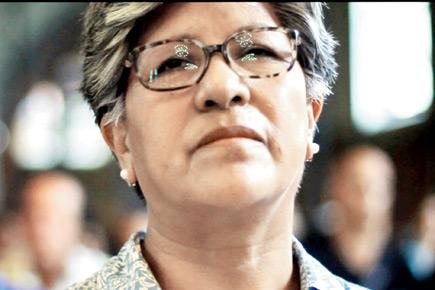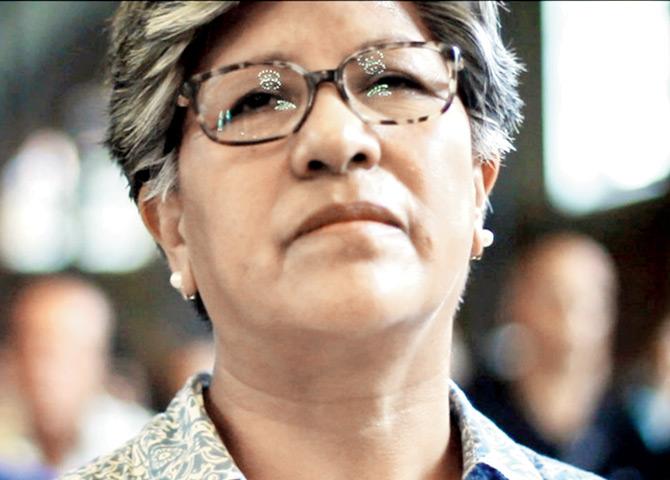Filmmaker Ashvin Kumar's latest project is a UN commissioned documentary on plight of migrant workers

Fanny Flores
ADVERTISEMENT
Commissioned by the United Nations, Ashvin Kumar’s documentary on illegal immigrant domestic workers, I’m Not Here, looks at the world of three women in search of a better life.
“The UN office of Human Rights wanted this story told to put a human face to the statistics and highlight, what is in effect, modern day slavery,” says Kumar, who lives between India and London. “I am interested in stories of human injustice, especially in the case of women, so the subject spoke to me.” Kumar was nominated for an Academy award for his short film, Little Terrorist, and has won two National Awards for his documentaries, Inshallah, Kashmir and Inshallah, Football. He is the son of fashion revivalist Ritu Kumar.

A still from the documentary featuring Fanny Flores, who left her home in Bolivia to find work in Switzerland. Unable to return, she listened to proceedings at her mother’s funeral through a phone call
The 30-minute film, available on YouTube, is composed of interviews with three women — an unnamed girl from Bangladesh who worked as a nanny in Malaysia; Fanny Flores who left her children and an abusive husband in Bolivia to find work in Switzerland and Jennifer Norgriff-Bernard who fled with her son from Trinidad to America.
The women make perilous journeys, face deportation (Flores was deported twice), risk sexual abuse (the 17-year-old from Bangladesh faced such horrific abuse that she needed medical reconstruction of her private parts) and imprisonment to be able to send money to their families. Since domestic work is mainly women-centric, it places this gender in more vulnerable and exploitable situations. They are more susceptible to physical and emotional intimidation and often imprisoned in the homes they work in. “They don’t have documents (passports are often held by employers),” explains Kumar. “They don’t have recourse to legal or medical facilities. As a result, they are poorly paid, exploited and vulnerable to deportation.
magine living 20 years without seeing your chaildren, and living your life in dread and fear as you try to do an honest day’s work. These workers are vital to the economy of the countries they work in, so why are they treated thus?”
Often, as in the case of the worker from Bangladesh, the salary never makes it to the employee. Abusive employers are also backed by native laws and financial resources. Flores became a Swiss citizen through marriage and was able to fund the education of her children back in Bolivia. Unable to return home, she listened to her mother’s funeral through a phone call. While Jennifer became a citizen recently, her son remains an illegal immigrant. The 17-year-old still wants to provide for her family by working in Bangladesh, and lives in fear of violence by her ex-employers.
Kumar’s native India was not covered in the film, “Since it has an open border with Nepal and a porous one with Bangladesh, immigration-related exploitation is low; there is a relatively lower risk of deportation. The countries we filmed in [Malaysia, Switzerland, USA] have strong immigration checks.”
 Subscribe today by clicking the link and stay updated with the latest news!" Click here!
Subscribe today by clicking the link and stay updated with the latest news!" Click here!







